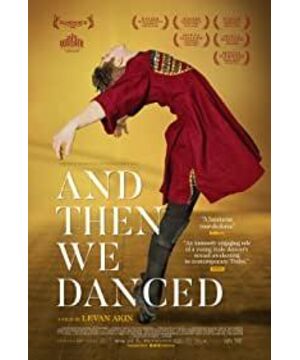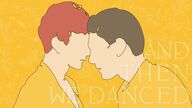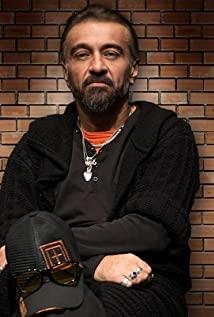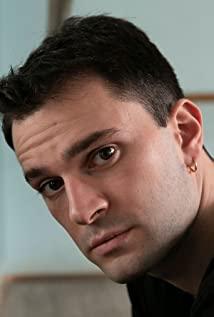If the judgment of a good movie lies in the aftertaste after watching the movie, that is, after a movie is over, you can still not get rid of the tension and aftertaste brought by the movie for a long time, this movie is a good movie, then And Then We Danced It's a good movie for me.
The New York Times once had a piece of news, the main content of the news was that the film’s release at the Georgia Film Festival was obstructed by far-right and religious forces, protesters blocked the cinema, prevented people from entering the film, and even threw objects to attack participants. The film crew, and the reason is that the film insults their pride - Georgia Dance, this is the first time I came into contact with this film.
I am familiar with foreign countries, American culture, and the history of Western Europe, but I am basically blank about Georgia, not to mention their dances. One of the few things I know about Georgia is that Stalin was a Georgian. Someone once said that if Lenin is a mighty river, then Stalin is unyielding steel, but after a deep understanding of it, I found that this description of Stalin fits the Georgian definition of a man—strong, brave, and powerful. This awareness is not only reflected in their life, but also in their dance. As the director of the dance company of the film said, Georgian dance is tradition, pride and nature. So at the beginning of the film, the coach of the dance troupe can no longer bear to interrupt the dance of the hero Merab, "You dance too softly!"
The plot of the movie is not brilliant, it can be said to be very traditional: the two male protagonists finally expressed their own voices after testing each other, followed by social pressure, and finally the inevitable separation of the two. Although this kind of structure has long been commonplace, the story development shown by different places, different people, and different backgrounds is colorful. Call Me by Your Name is a dream-like awakening, and in Mario Helpless painful struggle and sighing farewell, and And Then We Danced is a typical embodiment of Aristophanes-style love and self-awakening.
In the Symposium in Plato's Dialogues, Aristophanes once expressed his views on love: man was originally a sphere of two people (the double-faced man in Greek sculpture), and then Zeus split a man with a thunderbolt. For the second, from now on, people are no longer complete, they are born incomplete, but in order to seek completeness, they continue to pursue the original other half in the vast sea of people, trying to restore their own integrity. Before Merab appeared in Irakli, the material life was tormented - living in financial constraints, with a worried brother and mother at home, life weighed heavily on him, and his dancing could never meet the requirements of the coach. The appearance of Irakli allowed him to discover the integrity of his spirit, which was able to escape the weight of material things, so that he would peek at each other from time to time, secretly take his earrings, and secretly smell his clothes, as if to be able to peek at each other from time to time. In Aristophanes's eyes, it satisfies a trace of spiritual thirst. In Aristophanes' view, it is an expression of the pursuit of completeness, and the latter series of almost crazy performances are even more surprising to the powerful power of this craving - full street Borrowing money just to send a text message to Irakli who suddenly disappeared; staying at his door all night just to find out where Irakli is going; spraining an ankle, the pain was unbearable, but when I found out it was Irakli's call, all the pain immediately disappeared It's not as good as his words; the only way to sleep at night is to take out his earrings to fall asleep peacefully, even in his dreams, he is still there. Ilona of Love in Budapest once said when she was choosing a restaurant owner or a pianist: "Her soul asks for hunger, but her body asks for fullness." This contradiction between spirit and body is placed on Merab to choose is obvious, even in the case of soul integrity absolutely overwhelming the flesh. But under the heavy blow of reality, especially when one party is shaken, this kind of love will immediately shatter like a bubble without a trace. I have to praise the protagonist's acting skills for making this love look so beautiful, but it hurts so much when it's broken.
In the process of love, Merab also began to awaken to himself, not to say the awakening of his own sexual orientation, but the awakening of his identity (a kind of self-acceptance and open-mindedness). Facing the coach's criticism at the beginning, Merab always kept his head down, and then he looked directly at the coach because of his resentment and stubbornness, and even sprained his ankle; and one of them boldly went out with the drag queen, and even Being able to go head-to-head with homophobic dance troupe members shows that Merab is completing an awakening of self-acceptance, but the final scene is the final perfect transformation. Maybe people always wake up after losing, especially after ending a passionate love. Saying goodbye to Irakli at his brother's wedding was like a punch to Merab's face, making Merab completely awake. He was dancing majestic dance steps in the dance interview, and was woken up by the pain of the ankle, it was not just the injury of the ankle, but the injury of being brutally deprived of integrity, he began to dance another kind of soft dance, the interviewer He left the table angrily, but he still danced regardless, as if to release all the pain, release his true self, and present himself to this society dominated by stereotypes for the first time. The lady's curtain call mocked this conservative society, but it is certain that his dance of resistance and pursuit of integrity did not stop, and danced to the end of his life.
Movie rating: Unrated Viewing version: Festival entry version, dubbed in Russian (very annoying and deserving of emotion, will be re-watched after the original sound version resources come out) Movie subtitles: Official English subtitles Movie duration: 1 hour 46 minutes ( 106 minutes)
View more about And Then We Danced reviews











